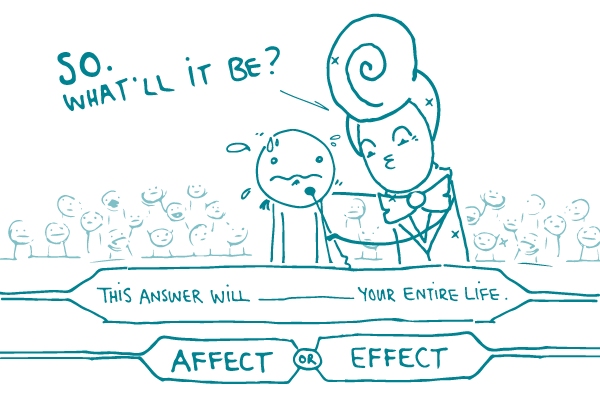
The English language (though beautiful) can be downright confusing sometimes, dear readers. That’s why, in a slight departure from our customary topic of health literacy, our editors have begged and pleaded with us to do a post about one of the most common mistakes we see in health communication: the dreaded “affect” vs. “effect” switch-a-roo.
“Affect” and “effect” are homophones (words that are pronounced the same but have different meanings). Homophones are the English language’s way of keeping us on our toes (think “they’re,” “there,” and “their”), and “affect” vs. “effect” is no exception.
Since we use these terms an awful lot when writing about health, it’s important to keep track of which is which.
Effect is most commonly used as a noun (i.e., a person, place, thing, or idea). It tends to come up when you’re talking about how something impacts your health.
- Health effects of smoking include lung cancer, stroke, and heart disease.
Affect is most commonly used as a verb (i.e., an action word) that means to have an effect on something.
- Smoking cigarettes can negatively affect your health — and lead to health problems like lung cancer, stroke, and heart disease.
So there you have it!
The bottom line: Know the difference between “affect” and “effect” to keep things clear and correct.
Browse recent posts